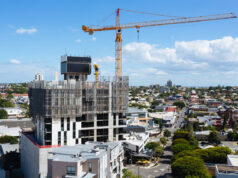Local councils across Australia are rapidly adopting smart cities projects to develop communities that are safe, sustainable and digitally connected. These projects had been driven mainly by communities but now, thanks to a new roadmap by Standards Australia, local authorities will receive substantial guidance.
It’s hoped the Smart Cities Standard Roadmap will prepare Australian cities and communities for a safer, more sustainable and more digitally connected future. It aims to bring cohesion, expert opinion and standardisation to many community smart cities projects currently underway in Australia.
The roadmap will guide cities and communities through 11 recommendations, including improving knowledge-sharing and collaboration, the sharing of data-accessibility and developing Internet of Things (IoT) and cybersecurity strategies.
The recommendations will be achieved by implementing a national framework and forming advisory groups in the next few years, the roadmap states.
The term ‘smart cities’ has become popular within local councils to describe new ways for communities to find sustainable, resilient and liveable solutions to solve everyday problems. It’s driven by the fast adoption of new technologies and data.
The Federal Government highlighted the need for a Standards Australia framework for smart cities in the Building Up & Moving Out report from 2018. The Government’s recommendation reflects the growing number of large and small communities across Australia adopting smart cities strategies.
A recent report from market research firm KPMG highlights the increasing maturity of the smart cities movement in Australia. The report found in 2019 that 21 per cent of Australian local councils were piloting smart cities projects, with a further 42 per cent in the strategy and development stages.
However, an initial public outreach by Standards Australia revealed a lack of standardisation across sectors and the need for clear metrics of performance to measure the effectiveness of different strategies. Also lacking were opportunities for stakeholders to contribute to the development of smart cities Standards at a local, national and international level.
“Standards will be an important part of supporting population growth and the safety of personal data, among other things, as smart cities continue to evolve,” says NSW Government Chief Data Scientist Dr Ian Oppermann, who is Committee Chair of the Smart Cities Reference Group.
“This roadmap is a tool we can use to identify how standards can further support Australian communities and complements the NSW Government Smart Places Strategy announced in early August in aiding the growth of smart cities and communities.”














